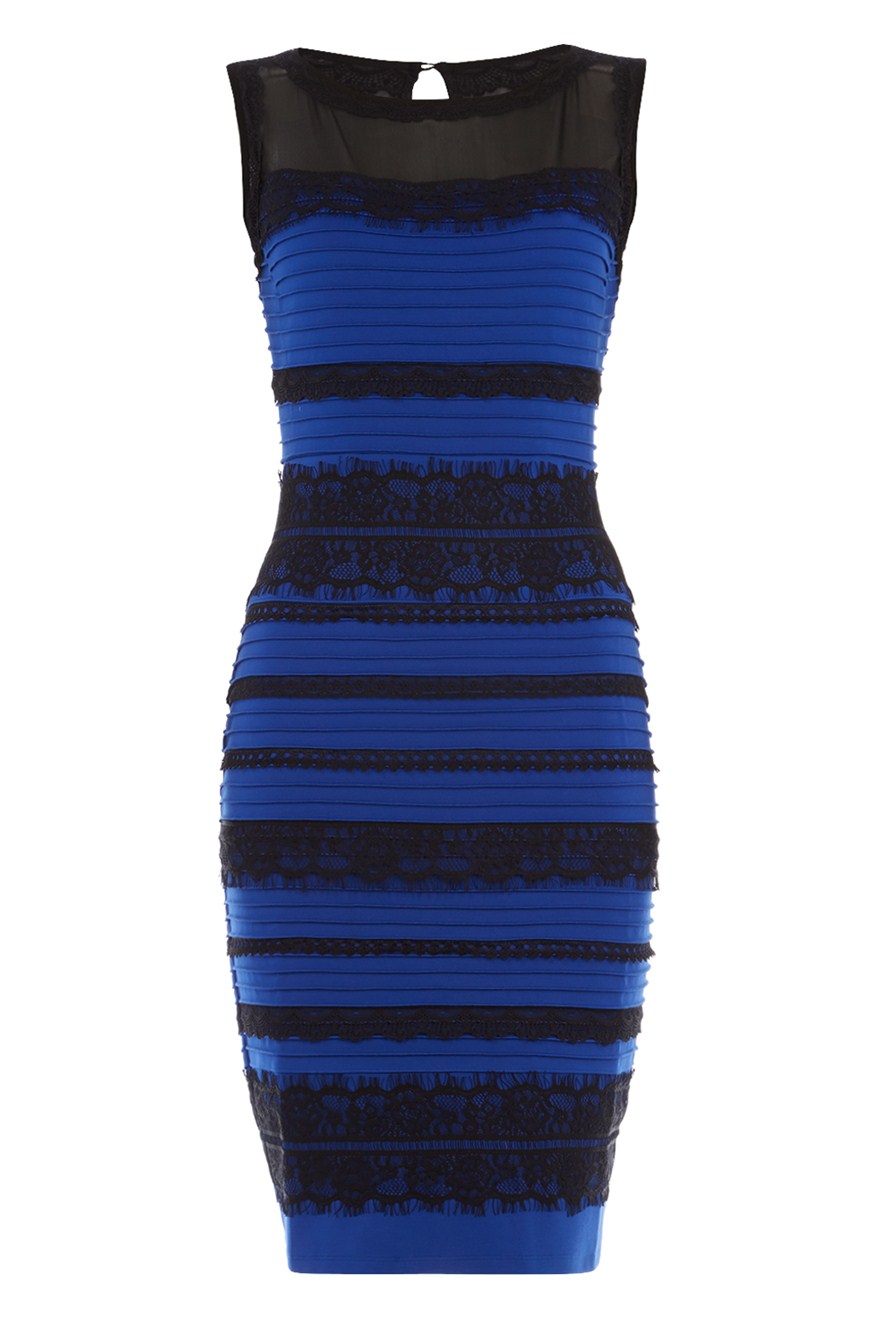We've Already Squandered Net Neutrality — And That's OK (Op-Ed)
There is no better tribute to the preservation of net neutrality than the Internet forgetting about the issue so it can watch a llama chase.

It took less than 2 hours for the Internet to journey from the lofty ambitions to the banal reality of net neutrality. On Feb. 26 at 1 p.m. EST, the Federal Communications Commission assumed regulatory power to prevent Internet service providers (ISPs) from favoring certain types of traffic and throttling (slowing) or blocking others. At 3 p.m. that same day, the Internet lost its collective marbles over a couple of fugitive llamas and, later that night, an overexposed picture of a dress.
In spite of high-minded discussions about how net neutrality would foster artistic creativity, education and entrepreneurial opportunity, there is something to be said for how it also lets people bond over incredibly stupid Internet phenomena. There is perhaps no better tribute to the preservation of net neutrality than the Internet promptly forgetting about that the issue and flitting to something else.
MORE: What Is Net Neutrality?
Proponents and detractors of net neutrality have resorted to very pessimistic and optimistic extreme scenarios of the free market. In a dark case, an ISP such as Verizon might require you to pay extra to access Netflix instead of Verizon's own video service. Or, Verizon might make you wait ages for the websites of Comcast-owned NBC to load. You might even lose access to sites Verizon deems objectionable.

Critics of net neutrality paint rosy pictures in which, left to its own devices, the free market would sort out problems like this on its own. But that requires that consumers have a choice among ISPs competing for customers by offering better services. In practice, cable companies (which are also the main ISPs) have monopolies in many parts of the United States and often just one competitor in others.
With that in mind, think back to Thursday. Had net neutrality failed, perhaps Comcast subscribers would have found it a bit easier to access NBC stories about the Internet phenomena. Maybe Birch (a popular broadband service in the Southern states) would have decided that this silliness was cutting into customers who wanted to stream Netflix, which was paying for fast-lane access into the Birch network, and throttled social media traffic.
Instead, the people of the Internet were free to ignore one of the most important developments in the history of the Internet, the FCC vote, and focus instead on a couple of rambunctious camelids and a sartorial optical illusion. Think of the multitude of tweets, jokes, memes, quizzes and honest-to-goodness think pieces that came out of these two passing fascinations. Now, think about how much less fun they would have been if your ISP had blocked some of them or preselected the "best" ones for you.
It's true. The citizens of the Internet don't appreciate what a good thing they have with net neutrality, and would rather focus on two hashtags that, in a few days, will seem as dated as top hats and cassette tapes. But, on the other hand, ignoring politics to focus on anything you want — no matter how dumb — is one of the many things net neutrality allows.
More From Tom's Guide
- Could Net Neutrality Ruin the Internet?
- Best Streaming Players: Chromecast, Roku, Apple TV & More
- What Net Neutrality's Approval Will Mean For You
Marshall Honorof is a Staff Writer for Tom's Guide. Contact him at mhonorof@tomsguide.com. Follow him @marshallhonorof. Follow us @tomsguide, on Facebook and on Google+.
Sign up to get the BEST of Tom's Guide direct to your inbox.
Get instant access to breaking news, the hottest reviews, great deals and helpful tips.
Marshall Honorof is a senior editor for Tom's Guide, overseeing the site's coverage of gaming hardware and software. He comes from a science writing background, having studied paleomammalogy, biological anthropology, and the history of science and technology. After hours, you can find him practicing taekwondo or doing deep dives on classic sci-fi.
-
mcashwell Do you hear yourself? I don't want my ISP "deciding for me." You shouldn't either. You've missed the ENTIRE point.Reply -
John Scior aLTHOUGH THE IDEA OF ADDING A REGULATORY BODY TO THE INTERNET SEEMS LKE A LOTOF RED TAPEFOR NOTHING, i'D RATHER NOT have ISP have the ability to add surcharges for things wetake for granted. When ATM's for banks first came out, there wereminimal charges, nowif you excede so many teller transactions, they charge you. Banks charge out the ass for any little thing. i am surprised they don'tcharge a "walking on the carpet" fee. Then they only pay you 1 percent for a depositand 15.9 for a credit card purchase. I am glad this is being implemented. The ISps can simply build the networks they want and charge customers a fee for what speed the ustomer wants andhow much data they use. It prevents there from beingfirst class citizens who get privledges.Reply -
JGeiger Mcash's statement rings of anti-vaxxers. "How dare you impose your vaccines on me and my child! We should have the right to get sick and spread disease!" Oh come on, give me a break. If you think its a great and reasonable practice for your ISP to selectively control the flow of internet to your home then..... well.... bless your little heart. The easiest example of these abuses are what ISP's did to netflix and Verizon all together making Google Wallet inaccessible due to having a competing product. I would rather keep these kind of things in the past rather than becoming a norm. Imagine if it got to the point where you had to proxy to many places in the web just to avoid your ISP meddling in what content you wanted delivered.Reply -
CoryMourning The very idea of ISPs, in general, is still in its infancy. I really feel the FCC jumped the gun on this. There are very few places in the US that don't have atleast 2 choices in ISPs, not to mention, the many cellular Internet providers out there. Additionally, it (coulda/woulda) should have been the next great startup to revitalize small business. Now that the FCC has expanded its power, a small starup ISP will have a harder (more expensive) time competing with the larger corporate ISPs. As long as this holds, we are likely to see fewer competitors, and as with ALL Public Utilities, you will see the providers working together in oligopolies (w/ lobbyists) to call the shots. Meanwhile, the very same FCC that wants to try to keep up with the Internet can't even update the GPS that (911) Emergency Services use. PEOPLE ACTUALLY DIE because responders can't locate them. I think the FCC's priorities are way off.Reply -
skit75 Xatos - "The problem is that the FCC, a non-elected bureaucratic entity, has decided for itself that the Internet is a public utility."Reply
The over 4 million public responses had nothing to do with it. Nothing at all.
This vote wasn't about the majority of American internet users. It was about the minority who have been getting screwed by the ISPs for years. Nothing changes for the majority of American users. I can continue to pay $73.00mnth for ~120mbps and don't have to worry about being blocked, throttled or re-directed to my ISP's suggested website/application/product page. -
house70 @CoryMourning, "There are very few places in the US that don't have atleast 2 choices in ISPs"Reply
really? You don't live in the US, obviously. Or you do, but choose to ignore the stats of ISPs; even worse, you know all that, but elect to say ISP's instead of high-speed providers (not to mention broadband providers, which are even more scarce). I hope you do include the dial-up providers, and I certainly hope you make use of a dial-up service for your personal internet.
Cellular providers? Sure, you go ahead and pay overages for your limited access, and praise the "providers" for providing you that meager quota. Besides, this regulation does NOT include wireless companies, but go ahead and keep up the misinformation. You forgot to mention that this bill actually makes it possible for municipal ISPs to appear, by making prohibitive deals illegal (see TN, for instance). Get informed, son, and stop making waves when you don't know (or elect to ignore) stats. -
mortsmi7 I think satellite and cellular internet falls into the bad internet category. Even dial-up could hit those low data caps in a month.Reply

